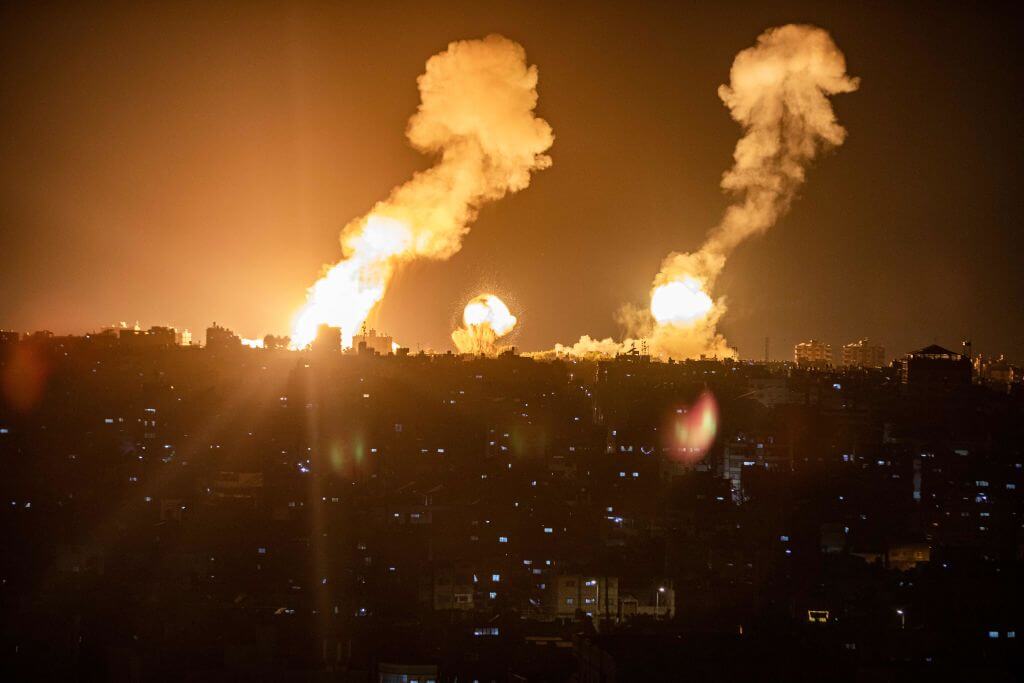Israeli air strikes hit Gaza and Lebanon in retaliation for rocket attacks
‘Israel’s response, tonight and in the future, will exact a heavy price,’ Israeli Prime Minister Benjamin Netanyahu said before the airstrikes.

This picture taken early on April 7, 2023 shows explosions in Khan Yunis in the southern Gaza Strip during Israeli air strikes on the Palestinian enclave. Photo by Getty Images
(JTA) – Israeli combat aircraft hit targets in Lebanon and the Gaza Strip after a day of rocket attacks from both areas, as the fallout from clashes at a Jerusalem holy site rolled into their fourth day.
The air strikes before dawn on Friday came hours after Israeli Prime Minister Benjamin Netanyahu convened a meeting of his security cabinet. “Israel’s response, tonight and in the future, will exact a heavy price,” Netanyahu said in a single sentence statement after the meeting.
The Israeli army said its strikes in Lebanon were aimed at Hamas targets. Israel blamed the militant Gaza Strip group, which is considered a terrorist organization by United States, for launching over 30 rockets into Israel’s north on Thursday. Other rockets were also launched from Gaza. Most were deflected by Israel’s Iron Dome antimissile system.
It is not yet known if Hezbollah, the better-armed Lebanese militant group that has also warred with Israel, played any part in the attacks.
Hamas and Hezbollah have both said there would be consequences for clashes Tuesday night inside the al-Aqsa mosque on Jerusalem’s Temple Mount, a compound holy to both Jews and Muslims.
Ramadan and Passover coincide this year, an overlap that has sparked Israeli-Palestinian tensions in the past. On Tuesday night, Israeli police subdued Muslim worshipers who refused to evacuate the mosque and threw rocks and fireworks at police. The Muslims were reacting to reports that Jewish extremists planned to sacrifice an animal for Passover on the Temple Mount. Under an arrangement in place since shortly after Israel captured the Temple Mount in the 1967 Six-Day War, Jewish worship on the site is limited to silent prayer.
Phone video of police beating the worshipers went viral, and stoked tensions. There have also been clashes in Israeli Arab centers between residents and police.
This article originally appeared on JTA.org.














